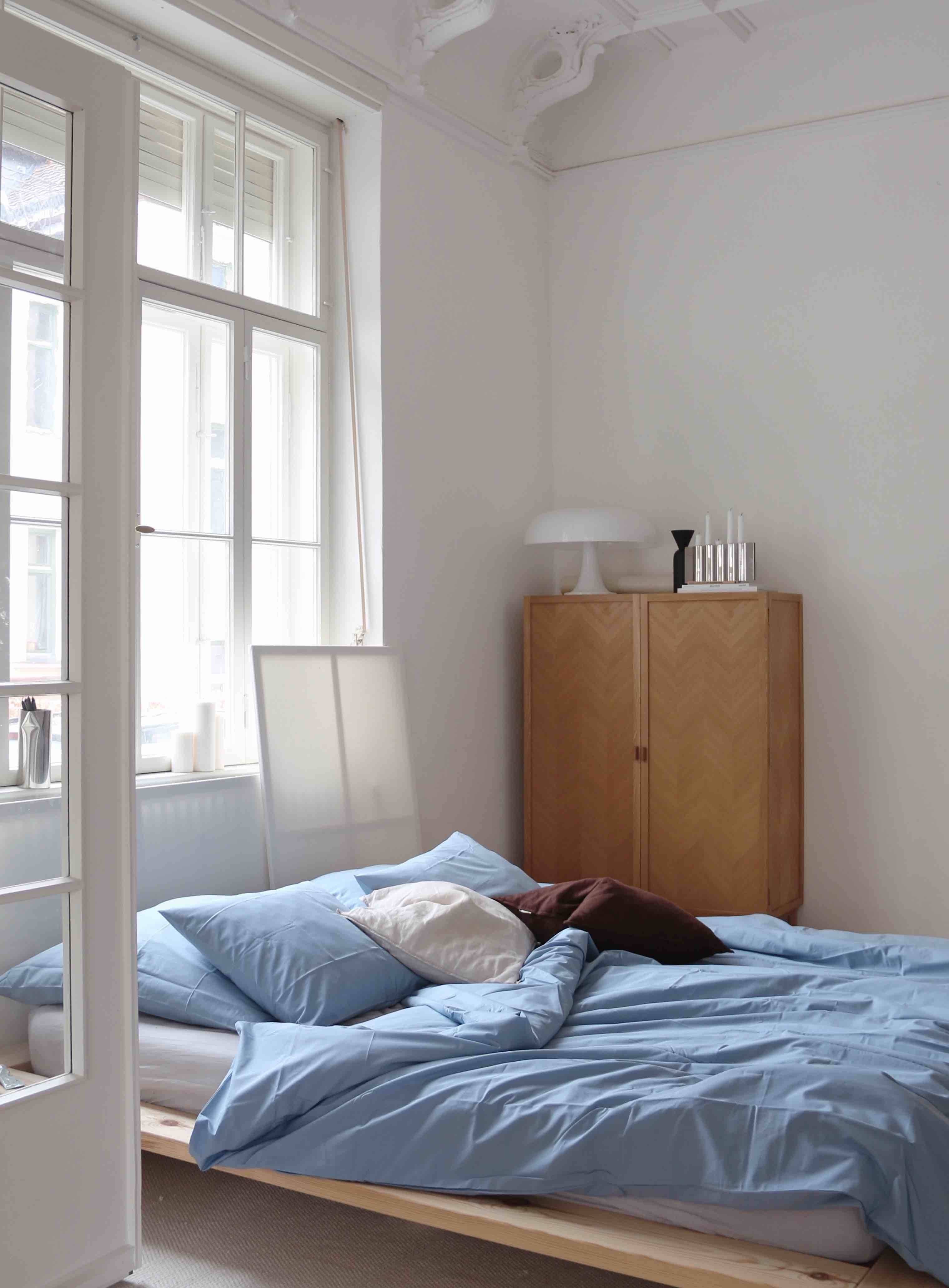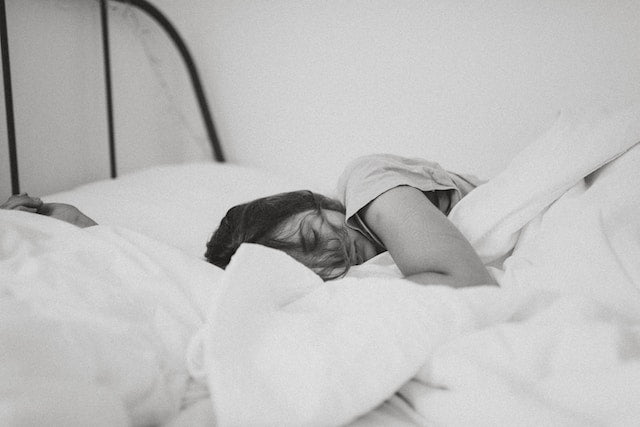
Comfortable beds are awesome. They are the places we go to cuddle and rest from our daily adventures. But what if the rest you get is not enough? Anyone with kids knows all kinds of things can happen when you are sleep deprived: Should you not turn fully blown zombie, you are at least likely to turn into the kid version of yourself, while feeling moody, forgetful, unable to perform easy tasks like making a cup of coffee- all the while dreaming about crawling back into your beloved bed. But how much sleep do we really need?
The perfect amount
How much sleep you need per night depends mainly on your age and can differ from person to person and from day to day. Maybe you are lucky and generally only need six hours a night, but most people need much more than that. The younger you are, the more sleep you need, as your body is still developing.
According to the National Sleep Foundation, newborns (0-3 months) need an average 14 to 17 hours of sleep. If you observe a healthy newborn, you will find that sleeping and eating is pretty much all they do and that is great, because sleep gives them the energy to grow, develop new skills and take in all of the new bits of information about the world surrounding them.
As babies reach the infant stage (4-12 months), they will still need an average 12 to 16 hours of sleep per 24 hours according to the American Academy of Sleep Medicine, including naps. The same study states that toddlers (ages 1-2) and preschoolers (ages 3-5) need an average 11 to 14 hours and 10 to 13 hours of sleep respectively. This means that if your preschooler naps for 1 hour after lunch, goes to bed early but then only sleeps for 9 hours at night and wakes you up at 4 o’clock at night, there is no cause for concern (at least not a medical one).
Once kids reach school age, they should get between 9 and 12 hours of sleep per night. That includes all children ages 6 to 11. Teens, on the other hand, can cope with a bit less — anything between 8 and 10 hours per night is normally enough.
However, adults should get at least 7 hours of quality sleep per night as well, and even though most adults are aware of this guideline, an average 30% of Americans reportedly don’t get enough sleep. The situation in other developed countries is not much different. According to the data collected by Sleep Cycle, an app that monitors your sleep time and quality, Europeans on average spend between 6.8 and 7.3 hours in bed, weekends included. Northern Europeans normally spend an average of 15 minutes longer in bed than southerners. Colder climate seems to equal warmer beds that you don’t want to get out of. (Or maybe people of the North just sleep on nicer linens...) Of course, an average of 7 hours seems sufficient, but we are still at the lowest end of the recommended sleep time and this data does not refer to hours of quality sleep but to time spent in bed. So, the actual time spent sleeping would be inferior to those numbers and to what we adults actually need.

Quality of sleep
Not only quantity matters, but also, and especially, the quality of sleep. It has happened to all of us— we don’t seem to be able to completely fall asleep but toss and turn in our beds and wake up every hour. The next morning we wake up as if we hadn’t slept at all. This also applies to your little ones who may be sleeping but not resting well. And over time a lack of quality sleep can even develop into a sleep disorder which may have terrible consequences for mental and physical health.
Consequences of bad rest
Some of the less severe symptoms of sleep deprivation are:
- difficulty concentrating
- sad feelings
- fatigue
- irritability
- lack of motivation
- difficulty of learning new concepts.
It is easy to see how adults and children alike are affected.
But if the person is sleep-deprived for a longer period of time, there may be more severe effects on their health, including:
- weight gain
- diabetes
- cardiovascular disease - stroke
- depression
- change in hormone production (especially growth hormone, in men also testosterone)
With this in mind, the importance of healthy sleeping habits becomes clear.
Why we don’t sleep enough
Busy bees. One of the reasons for unhealthy sleeping habits is definitely our hectic work day that leaves us very limited time for family and household chores. Even children and teenagers nowadays are reportedly more stressed than a few years back. They come back home and instead of relaxing, they are busy with homework, often for several hours, before getting ready for bed. Kids these days are also notoriously overscheduled — school, sports, piano lessons, French and playdates... it all leaves little time to actually relax. This means the whole family goes to bed with their brains switched to “active-mode”.
Always on. Do you take your phone to bed? Maybe you should rethink that option and leave it in a different room. It has been proven that the blue light these screens emit blocks the production of melatonin in our bodies. Melatonin is the sleep hormone that makes you drowsy at night. It is no wonder you don’t feel tired while reading on your phone or watching a film on your tablet. But this way, it will take you much longer to actually fall asleep which means you get fewer hours of quality sleep. Once you have fallen asleep, screen devices also tend to wake you up again and interrupt your sleep cycle.
The basics. Another factor may be your mattress and bedding. Sleeping on an uncomfortable mattress is anything but a nice experience. Your mattress does not need to be expensive, but it should be supportive and the right one for your sleeping position. That being said, there is no one-size-fits-all recipe for success here. Your best bet is to try mattresses in the store, don’t be shy- ask the staff for recommendation! Alternatively, if buying online check the reviews and buy a mattress you can test for several weeks. This way you should be able to return it for a better suited mattress in case the initial one isn’t right for you. Linens are just as important. As we have explained in former posts, there are huge differences between different kinds of linens available on the market. If you go for the cheaper polyester microfiber kind, odds are that your body will be feeling too warm at night. Microfiber is not a breathable fabric, which is why your skin may start itching, too. Your sheets should be breathable and keep you cool. The duvet itself will keep you warm in winter, the sheets keep you asleep. By cooling your own body temperature, you brain receives the signal that it is night-time and will automatically produce more melatonin, helping you sleep through the night.
Un-cool. Of course, your bedroom temperature changes with the seasons, but the best temperature is considered between 15.5oC and 19.5oC (61oF - 67oF). Any warmer than that, and you’re in for a rough night.
Late eaters. Another common mistake that prevents many people from sleeping well is having dinner right before bedtime. Let your body digest a meal while you are still awake. This way it can actually rest once you get to bed. Now, digestion will make you feel sleepy and that is when you could possibly doing some light exercise like taking a walk, so that you get physically tired and ready for bed, all at the same time.
5 tricks for better sleep
-
Try to pace yourself down, maybe by taking a walk or having a nice conversation. For kids bath time usually does the trick.
-
Have dinner 2-3 hours before bedtime or, if this option seems impossible, choose to eat something you can digest quickly like toast, eggs or bananas.
-
Try to do some exercise to get physically tired. You could hit the gym, play with the kids, or take the dog out for a nice long walk!
-
Adjust the room temperature in your bedroom and invest in a few good quality linens to prevent your body from overheating at night.
-
Ban phones and tablets from the bedroom. Read a nice book instead!
Click here to find more inspiration for how to sleep better at night!






